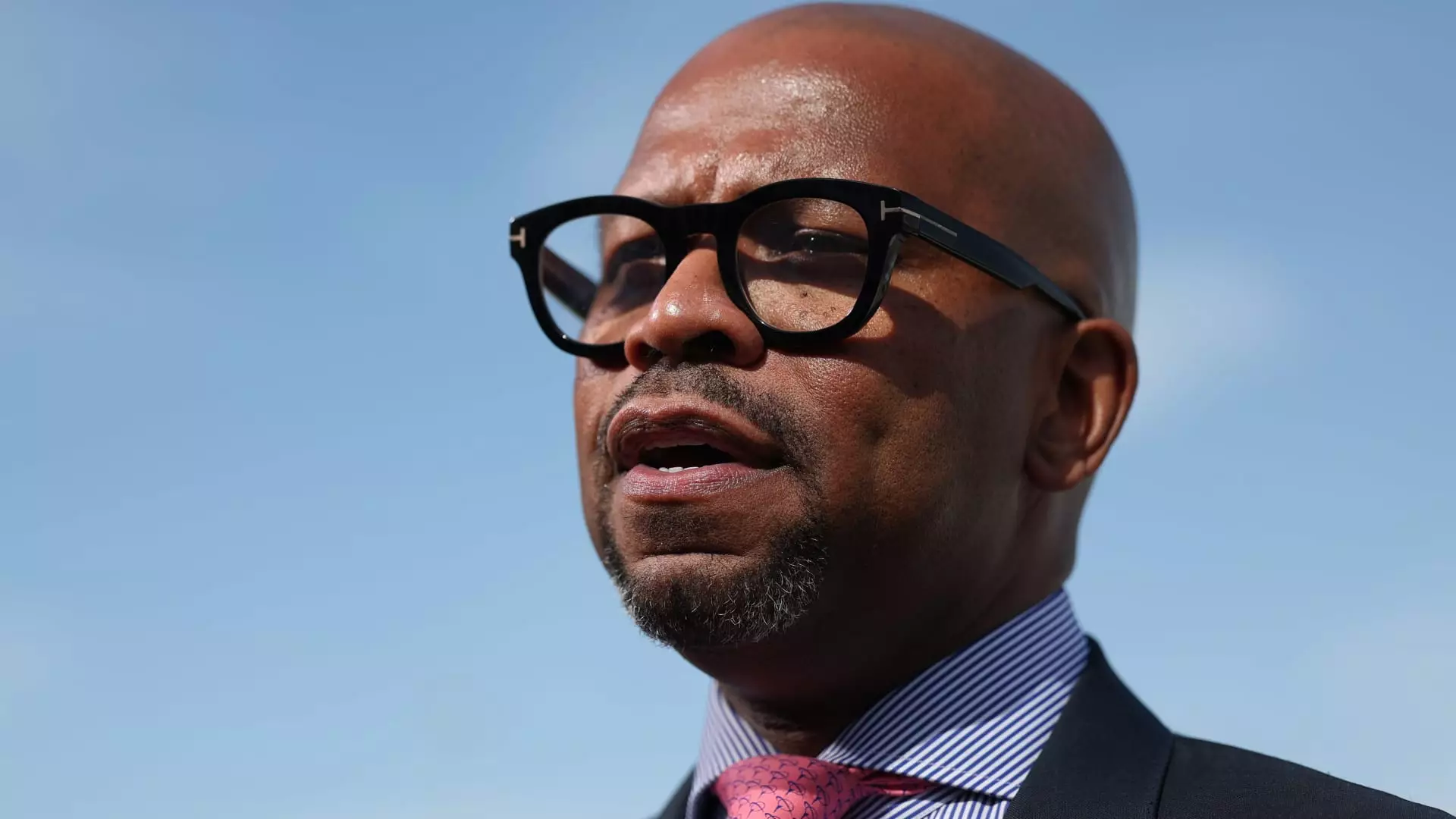In light of recent developments at Boeing, the departure of Ted Colbert from the helm of the defense unit signifies a pivotal moment for the aerospace giant. CEO Kelly Ortberg’s announcement, marking Colbert’s exit effective immediately, reflects not just a change in personnel but a strategic response to ongoing challenges within the company. These challenges have become particularly pronounced in the defense, space, and security sectors, which are critical to not only Boeing’s survival but also to national security interests around the globe.
Ortberg’s statement emphasized the urgent need to rebuild customer trust and meet the high expectations that come with Boeing’s substantial role in global defense contracts. His comments reflect an understanding that, in today’s competitive aerospace market, maintaining the confidence of defense clients is paramount. This transition indicates a recognition of the internal and external pressures facing the company, particularly as they grapple with performance inconsistencies and growing scrutiny over their project management practices.
Boeing’s defense unit has been a significant contributor to the company’s revenue, accounting for nearly 40% of its earnings in the first half of the year. However, this division has not been without its turmoil. Recent production delays, particularly concerning the new Air Force One 747s, alongside cost overruns, have raised red flags in an industry that cannot afford missteps. Ortberg’s appreciation for Colbert’s fifteen years of service further underscores the difficulty of making leadership changes during turbulent times.
With Steve Parker stepping in as acting head of the defense unit during the transition, there is an anticipation of a strategic realignment. Parker’s experience as Chief Operating Officer might provide the necessary stability as Boeing seeks to navigate the choppy waters of defense contracting. This interim period will be crucial for assessing the direction of Boeing’s defense initiatives as the company attempts to stabilize operations.
Ultimately, the recent leadership shake-up serves as a microcosm of the challenges faced not just by Boeing but by the entire aerospace sector. Companies in this field are now under increased pressure to cut costs while also innovating rapidly to remain competitive. Questions loom about Boeing’s capacity to deliver on its commitments amid scrutiny from both clients and regulatory bodies.
At the same time, the implications of Colbert’s departure extend beyond immediate operational concerns; they speak to Boeing’s long-term strategic vision. As the company looks to redefine its approach in the defense sector, it must balance short-term recovery with long-term innovation, particularly in light of setbacks such as the unanticipated absence of NASA astronauts from the Starliner mission.
As the company works to regain a foothold in both the defense and space markets, the importance of effective leadership cannot be overstated. Ortberg’s pledge to enhance performance is a commitment that will be closely monitored by stakeholders, customers, and industry analysts alike. In a landscape where the stakes are high and competition is fierce, maintaining leadership stability while achieving operational excellence will be decisive for Boeing’s future.

